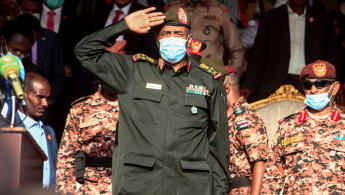Burhan issues a general amnesty for all arms carriers in Sudan
The amnesty extends to "anyone who carried weapons, participated in any of the military or war operations, or contributed to any act or statement related to combat operations," the news outlet reported quoting Sudanese News Agency.
The Sudanese government will receive rebel leaders in Khartoum next Sunday to mark the occasion.
Ending Sudan's internal conflicts has been a top priority of the transitional government, in power since last year's ousting of longtime dictator Omar al-Bashir in a popular pro-democracy uprising.
Sudanese paramilitary commander Mohamed Hamdan Daglo - best known by his nickname "Hemeti" - signed the deal on behalf of Khartoum on October 3.
A representative of the Sudan Revolutionary Front (SRF) and others from the groups making up the coalition, also signed.
The SRF comprises rebel groups from the war-ravaged western Darfur region, as well as the southern states of Blue Nile and South Kordofan.
Guarantors of the deal from Chad, Qatar, Egypt, the African Union, European Union and United Nations also put their names to the agreement.
However, two other powerful rebel groups did not sign, reflecting the challenges still facing the peace process.
Sudan has been torn by multiple conflicts between the Arab-dominated government that was led by Bashir for three decades and rebels drawn from non-Arab ethnic groups in its far-flung regions.
Read more: Will Sudan's historic deal with rebels finally bring peace?
In Sudan's vast rural areas, settled ethnic minority farmers have frequently competed for scarce resources with Arab herders, who have often been backed by Khartoum.
Multiple civil wars have raged since independence in 1956, including the 1983-2005 war that led to the secession of the south.
The devastating war in Darfur from 2003 left at least 300,000 people dead and 2.5 million displaced in its early years, according to the UN.
Follow us on Facebook, Twitter and Instagram to stay connected





 Follow the Middle East's top stories in English at The New Arab on Google News
Follow the Middle East's top stories in English at The New Arab on Google News
![Netanyahu furiously denounced the ICC [Getty]](/sites/default/files/styles/image_330x185/public/2024-11/GettyImages-2169352575.jpg?h=199d8c1f&itok=-vRiruf5)
![Both Hamas and the Palestinian Authority welcomed the ICC arrest warrants [Getty]](/sites/default/files/styles/image_330x185/public/2024-11/GettyImages-2178351173.jpg?h=199d8c1f&itok=TV858iVg)
